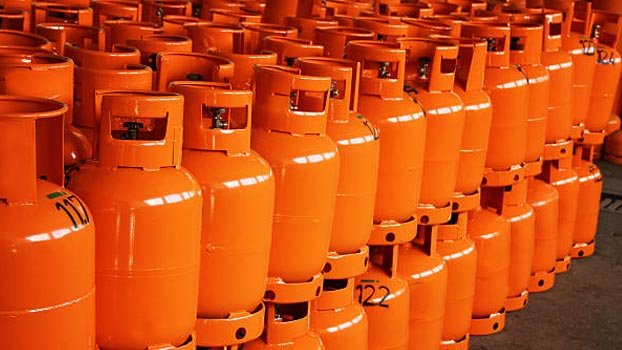LPG price volatility leaves BERC in crisis

The international market price of LP gas (liquefied petroleum gas) has become volatile. Per tonne price of LPG has risen by about $200 in the last three months, which is going to break the record of previous years.
The record high price of LP gas made from a combination of propane and butane was recorded in October, 2018. At that time, the price of propane and butane rose to $655 per tonne. That was the record for the highest price of LP gas in recent times. But from the following months, the prices began to fall and dropped to $350 in September, 2019. Then, in the winter (January 2020), propane butane was traded between $565 and $590, respectively.
LPG prices continue to fall since next month. During the Coronavirus pandemic, the price was $230 in April 2020, which was the lowest in a few years. It rose from May and reaches $430 in November. And now the LPG price is $550 in the current month. The LPG price index has shown that prices always maintain upward trend in winter.
LPG markets across the country have become volatile due to its rising prices. The LPG traders have also increased its price. Bangladesh Energy Regulatory Commission (BERC) is going to announce LPG market price for the first time at a time when buyers are smarting from the sudden increase in prices.
Until now, fixing price of LPG was at the discretion of the companies. Although there has been a lengthy discussion about fixing up the price, yet it is not sure whether the energy division, BERC or BPC would do it.
However, when buyers are accustomed to purchasing LPG at lower prices, many feel that if the price is announced considering the highest price, it could have a negative impact on the buyers.
There is an obligation to issue an order within 90 days after a public hearing. However, there is no guarantee that prices will fall suddenly, or even rise. BERC sources said they would like to announce the rates in late February or early March.
When contacted, BERC chairman Abdul Jalil told Bangladesh Post, “The commission is now working in this regard after completion of public hearing. We have also bindings of rule and high court order. So we have to fix-up the price within a scheduled time. Hopefully, we can do it. Those who are working about the price they will consider all issues. So we cannot expect the specific comments about the matter right now. But I assure that all the relevant issues including the price of the international market will be taken into consideration to fix the LPG price.”
Around 98 percent of the LPG used in the country is import dependent. The market share of the government (Bangladesh LP Gas Company Limited) is only 1.5 percent. There are currently 28 LPG operators in the country with the capacity to provide two million tonnes of gas annually, against a demand for one million tonne.
At the import stage, each company is importing from different markets. Some are brought under long-term contracts, some from the sport market (open market). In this way, the price is being fluctuated at the import stage.
BERC specialised committee could not find out a better way to lower the price of LPG (liquefied petroleum gas), so it recommended subsidising the private sector operators with public money.
The Technical Evaluation Committee – at the first-ever public hearing held on January 14 to set the price of LPG – recommended providing a 25% subsidy to the private operators. Traditionally, the private operators used to set their LPG prices as they think fit.
As part of its recommendation to lower LPG prices, the evaluation committee suggested increasing the LPG price of the lone state-owned operator LP Gas Ltd from Tk 600 to Tk 902, so that the money could be channelled to the private operators under the cross-subsidy method.
The committee also suggested a unified LPG price at the retail level for all private operators, which will be adjusted every month based on the Saudi contract price.
The BERC organised the hearing following a High Court order in December last year. The Consumers' Association of Bangladesh (CAB) filed a case in 2016 to rationalise the LPG price in the domestic market to ensure that all consumers can afford it.
The CAB's Energy Adviser Prof M Shamsul Alam, however, diferred with the BERC's recommendation at the hearing, saying there is no logical ground for subsidising private companies with public money.
"LPG from the LP Gas Ltd is already very hard to find in the market. If its price becomes higher than the private ones, the company's situation will be similar to that of the state-owned sugar mills – which are now on the verge of shutting down," said Alam.
He also disagreed with the TEC's recommendation to adjust the price each month, as it violates the BERC's Law that does not allow the adjustment of energy prices every month. Therefore, Alam opined to fix the price for a definite time and period.



